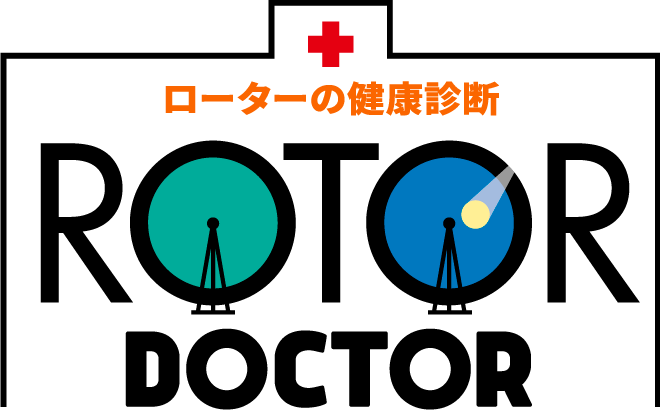After-sales Service
Desiccant Dehumidifier / Dry Room / Heatless Desiccant Outdoor Air Handling Unit
Maintenance Details
| Inspection points | Inspection details | Inspection methods | Maintenance details | Inspection cycle | Replacement cycle | |
|---|---|---|---|---|---|---|
| 1 year | Others | 24/7 Operation | ||||
| Rotor | Clog, dirt, and damage check, and performance verification*1 | Visual inspection | Cleaning or repairing | ● | 5 years | |
| Rotor drive unit | Check for motor noise, belt/chain condition, oiling status, current values, and insulation resistance values | Visual inspection | Cleaning, oiling, and belt adjustment or replacement | ● | Belt : 3 years Chain : 5 years Motor : 3 years |
|
| Electrical measurements | ||||||
| Air seal | Wear, scratches, cuts, and contact condition | Visual inspection | Adjustment or replacement | ● | 2 years | |
| Fan | • Check for abnormal noise, belt condition, oiling status, current values, and insulation resistance values | Auditory inspection | Cleaning, oiling, and belt adjustment or replacement | ● | Belt: 1 year | |
| Visual inspection | ||||||
| Electrical measurements | ||||||
| Heater | Check for fin dirt, tube/piping leakage, current values, and insulation resistance values | Visual inspection | Cleaning or replacement | ● | 3 years | |
| Electrical measurements | ||||||
| Cooler | Check for dirt and tube/piping leakage | Visual inspection | Cleaning or replacement | ● | – | |
| Chiller | Check for gas and oil levels, dirt, and tube/piping leakage | Visual inspection | Cleaning or replacement Regular inspection based on the applicable regulations on the rational use and appropriate management of fluorocarbons |
● | – | |
| Filter | Check for tears, dirt, and frame deterioration | Visual inspection | Washing or replacement | Monthly | Depending on the level of dirt and static pressure increase | |
| Control panel | Operational check, and check for broken or disconnected wiring | Visual inspection | Tighten any loose terminals and re-insert Cleaning |
● | – | |
| Drain pan | Check for dirt, foreign objects, and corrosion | Visual inspection | Washing | ● | – | |
| Appearance | Check for dirt, foreign objects, and corrosion | Visual inspection | Repairing | ● | – | |
| Inside the Unit | Check for dirt, foreign objects, and corrosion, and insulation material check | Visual inspection | Cleaning and repairing | ● | – | |
| Dehumidification performance | Measurement at each point *1 | Dew point measurement, etc. | Dew point sensor to be calibrated by the manufacturer every year | ● | – | |
*1 : If the dehumidification performance is declining, we will check for any issues with the rotor performance and the system.
If the cause is rotor deterioration, an analysis of the root cause is also possible.
Rotor Deterioration Inspection and Analysis

We recommend regular diagnostic checks of the honeycomb rotor.
We will propose analysis items tailored to your operating environment.
Benefits of Regular Diagnosis
1. Prevention of sudden performance drop and potential issues
2. Optimize for changes in operating conditions and predict the timing of replacement
3.Budgeting and cost reduction through planned replacements
Disadvantages of Rotor Deterioration
- Trouble due to performance degradation (production stoppage, yield deterioration, etc.)
- Load on fan and other ancillary equipment due to clogging
- Accumulation of high boiling point substances leading to fire and burning
We recommend rotor deterioration inspections not only for maintaining performance but also for ensuring safe use.
Factors Contributing to Rotor Deterioration
- Aging
- Condition of processed air
- Inclusion of degrading substances
- Effects of installation environment, etc.
Flow of Periodic Diagnosis
-
Contact us
-
Schedule adjustment
-
Rotor element sampling
-
Basic investigation/Detailed analysis
(3-4 weeks) -
Results reporting
-
Recommendations for rotor replacement(If performance falls below a certain level:)
-
Rotor replacement
Rotor replacement
Analysis details
Basic investigation
Analyzing the state of the rotor to understand it accurately
- Static adsorption test (Adsorbent performance test)
- Thermogravimetry differential thermal analysis (TG/DTA)
- Specific surface area and pore distribution measurement
Detailed analysis
Conducting a thorough inspection and analyzing the cause of deterioration
- Digital microscope observation
- pH measurement (Acid and chlorine measurement)
- Energy dispersive X-ray analysis (EDX)
- X-ray fluorescence (XRF) surface inspection
- Fourier-transform infrared spectroscopy (FTIR)
- Gas chromatography–mass spectrometry (GC–MS)
- Ion concentration analysis
- Compressive strength test
- XRD



